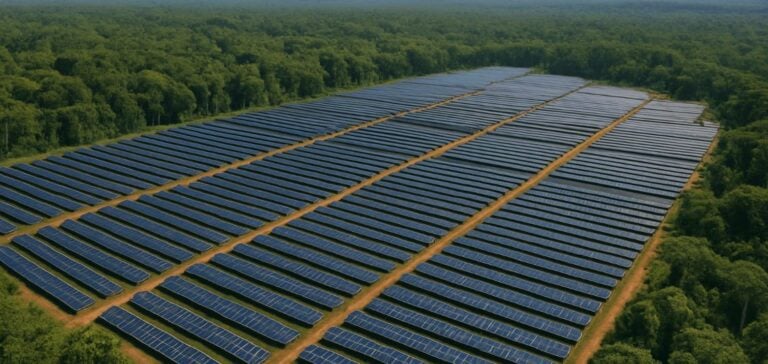Côte d’Ivoire has launched two international tenders for the construction of photovoltaic solar power plants, each with a capacity of 100 megawatts-peak (MWc), in Dabakala and Niakaramandougou. Each site will include an energy storage system with a capacity of 33 megawatt-hours (MWh). The projects will be developed under a 25-year concession model for Independent Power Producers (IPPs).
Authorities have set 25 July 2025 as the deadline for submissions. The initiative is part of the country’s “Pacte National Énergie”, aimed at strengthening generation capacity and grid stability while attracting private investment. The stated goal is to reach a 45% share of renewables in the national energy mix by 2030.
A transforming grid driven by growing demand
According to official data, the country’s installed capacity stood at 2,907 MW in 2023, with 69% derived from thermal sources. Between 2011 and 2023, the transmission network expanded from 4,422 km to 7,553 km, while the distribution network grew from 36,101 km to 61,286 km. This expansion led to improved electricity access, reaching 72.4% of the population in 2023, up from 61.5% ten years earlier, according to the World Bank.
Storage and network reliability in focus
Integrating storage into the Dabakala and Niakaramandougou projects is a technical response to the variability of solar output. This configuration aims to improve grid stability, especially in remote areas where logistical constraints are greater. Storage technologies are also expected to optimise the injection of solar energy into the grid during peak demand periods.
The Ivorian state is looking to capitalise on these new projects to strengthen its position as an energy supplier within the sub-region. Domestic demand continues to rise, alongside a strategy of exporting to neighbouring countries. This dual objective compels the government to accelerate the deployment of modern infrastructure and attract private operators capable of meeting technical and economic requirements.
The World Bank reported that nearly 94% of urban areas in the country were covered by the electricity grid in 2023, illustrating the progress made, but also highlighting the need to expand access in rural areas through more resilient and locally adapted projects.






















